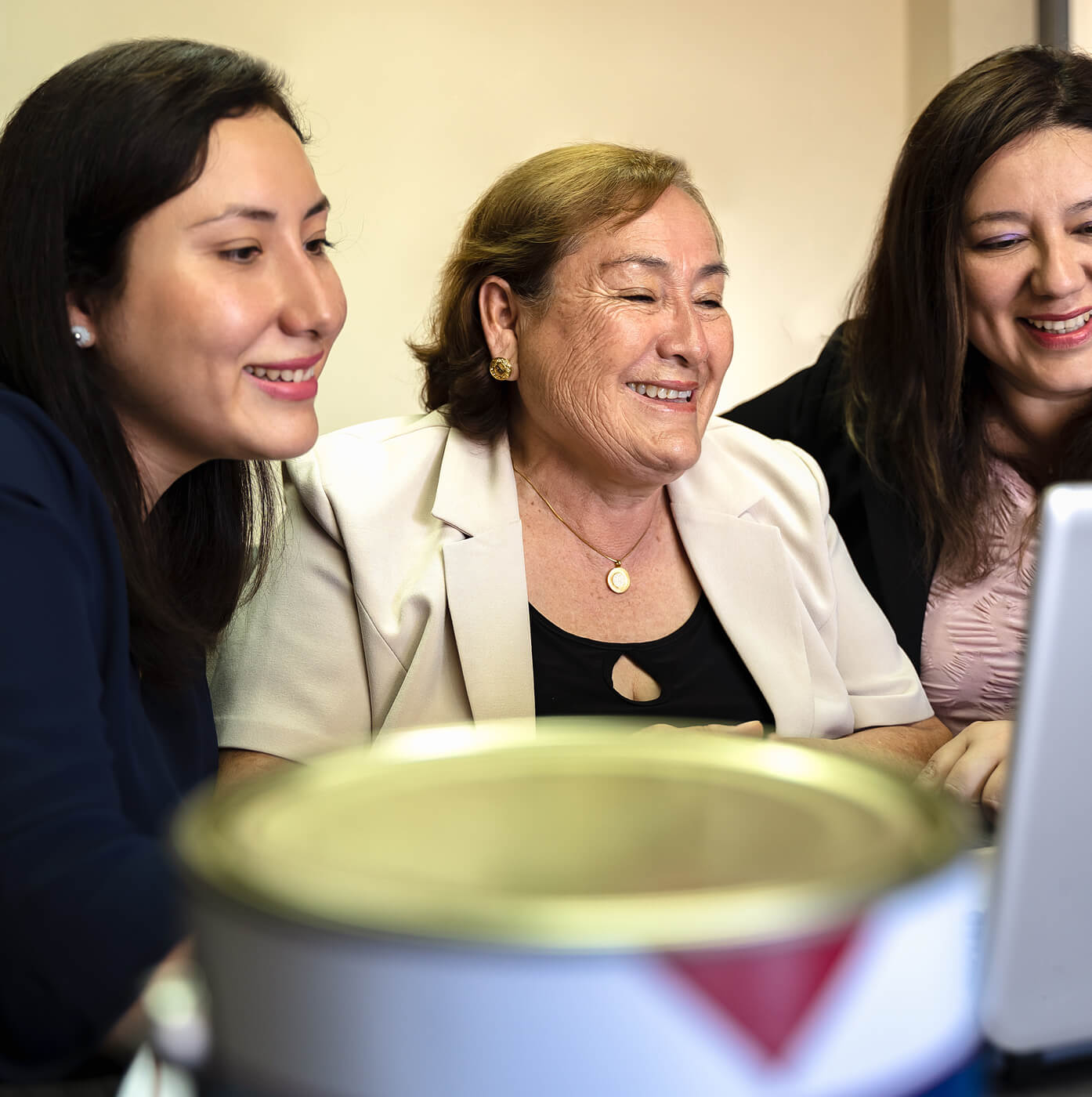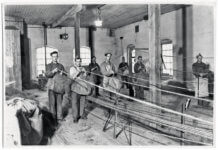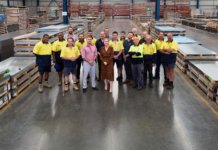Universal Colors, a Peruvian family business manufacturing protective industrial and marine coatings, knows how to weather a storm.
Its founder, Juana Antonia Espinoza Reyes, became cognizant of an opportunity in the marine coatings industry around the turn of the millennium. When her brothers, whom she had previously worked within a family business setting, baulked at the opportunity, she decided to pursue it on her own.
Later, Juana’s daughters, Erika and Lizbeth, joined her in business after earning their engineering degrees. Together, they have shown remarkable tenacity and entrepreneurial tack in rising to the top of their male-dominated industry despite Peru’s intermittently volatile economic conditions. Universal Colors is now one of Peru’s leading suppliers of marine coatings and paints.
We had the opportunity to sit down with Juana, Erika and Lizbeth to discuss the company’s origins, the family’s rebound from recession in the 1990s and demanding respect in a male-dominated industry.
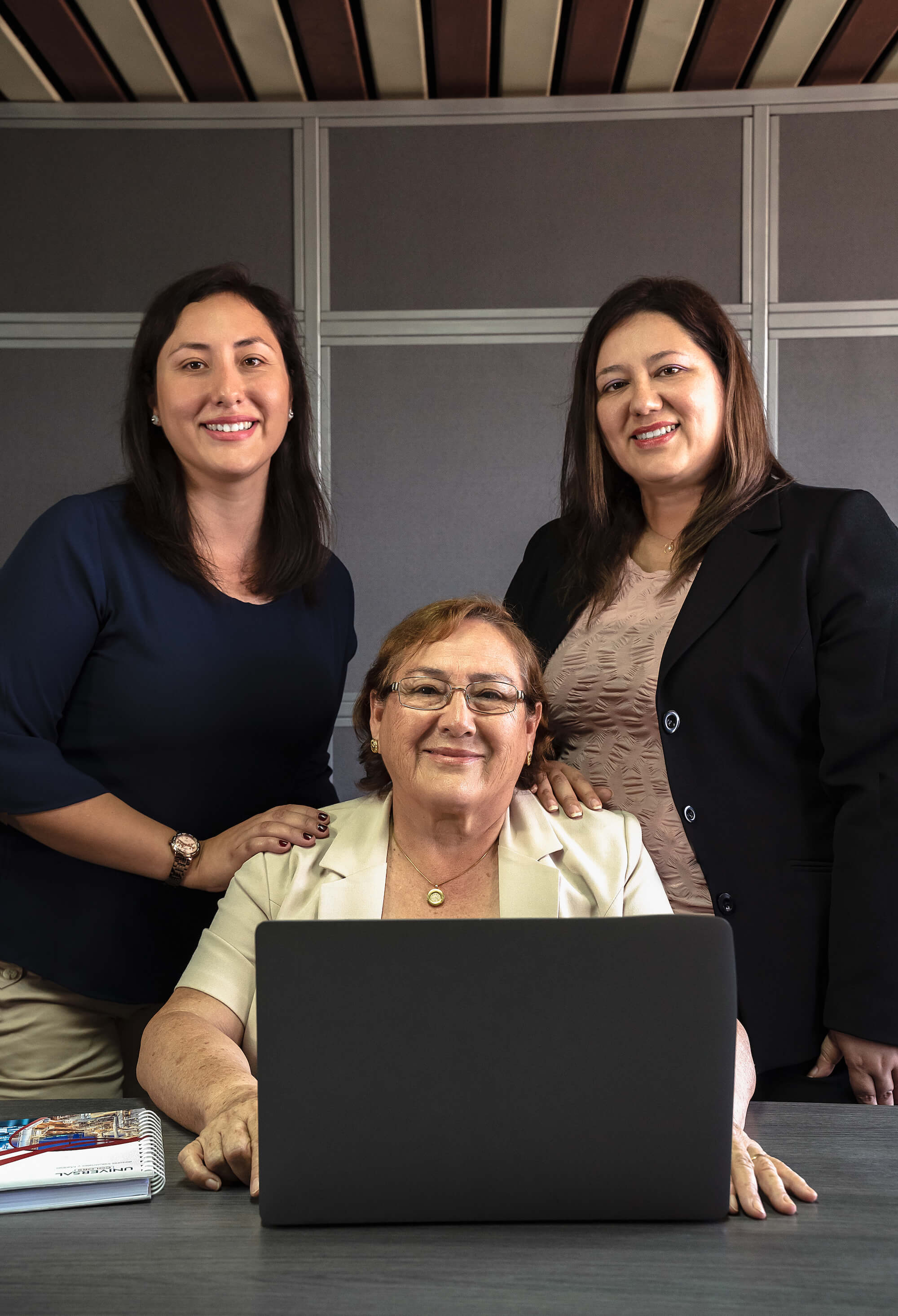
A female-founded and led industrial company is quite rare. How did this come about?
Juana: It is rare, but as I always say: my life is like a novel. When I was younger, I formed a company manufacturing electrical panels for industry, J&W CIA, with my brothers. This year, we are celebrating 31 years in operation.
Through our involvement with various industries, I learned that every metal industrial part needs a high-performance coating. Around the year 2000, I suggested we form a paint and coating company that would cater to this market. As supportive as my brothers were, they were not prepared to take the risk associated with this new venture. So, I went ahead on my own; J&S Coatings Peru, Universal’s precursor, was born. Where there are great challenges, there are also great opportunities.
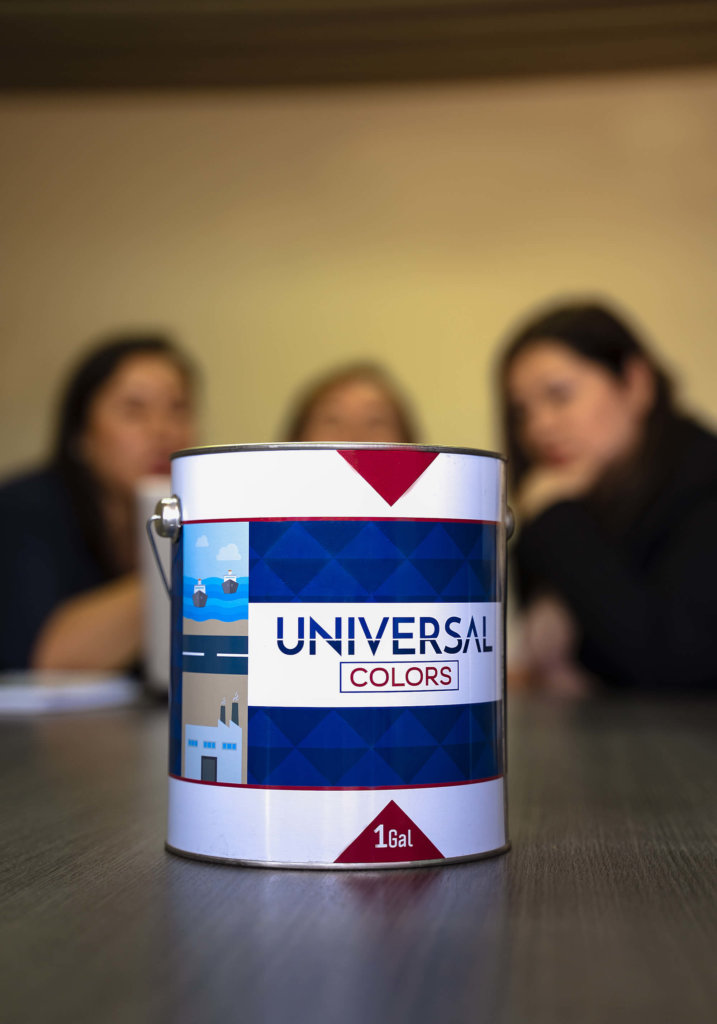
I’ve always known that masculinity is not, as some may assume, a prerequisite to entrepreneurial success in heavy industry. Women are every bit as capable as men and more. This century belongs to women.
Is it more difficult to succeed in this industry as a woman? How to become a leader in a male-dominated industry?
Juana: I am my mother’s daughter – she was both a creative powerhouse and a tenacious fighter. She raised her with the belief that nothing is impossible. She instilled in us three fundamentals: don’t steal, don’t lie and avoid idleness at all costs.
I’ve always known that masculinity is not, as some may assume, a prerequisite to entrepreneurial success in heavy industry. Women are every bit as capable as men and more. This century belongs to women. I am 65 years old, and it gives me satisfaction to know my daughters will provide continuity and forge their own paths within the business. Our predecessors motivate us to take on challenges that may at first blush seem impossible.
Lizbeth: There are certain challenges that women in male-dominated industries face, but they are in no way insurmountable. When I went to university to study electrical engineering, there were 60 of us: 59 men and me. Initially, many of the men would ask if I was the assistant or the secretary. I would simply repeat that I was an electrical engineer. Soon enough, they came to respect my abilities; gender was no longer a factor. It was a real eye-opening experience for them.
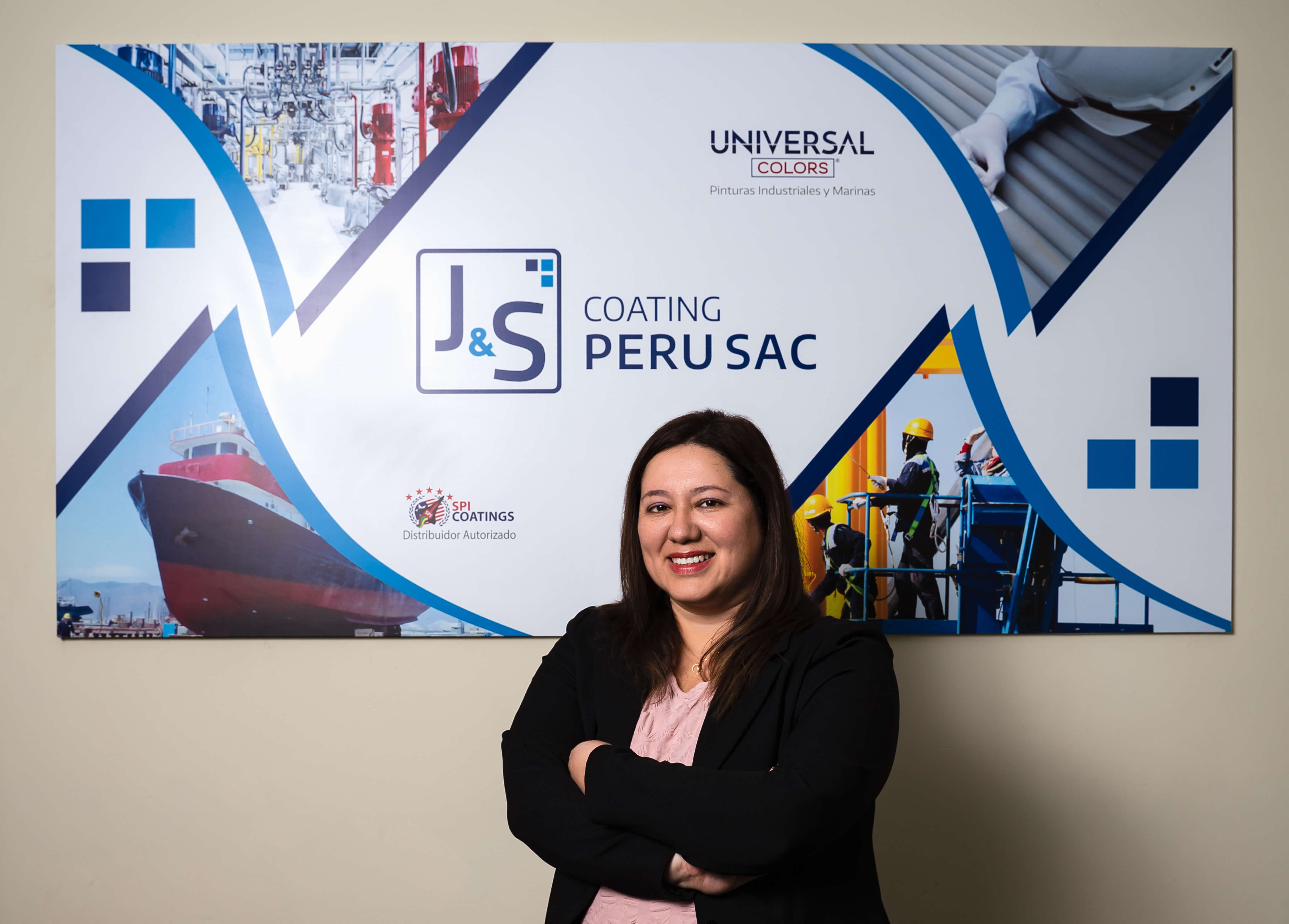
Erika and Lizbeth, was it always predetermined that you would join your mother in business?
Lizbeth: She always involved us, even when we were very young, asking questions and letting us know she valued our opinions. I was 20 when my mother started Universal Colors, and I remember saying to her, ‘It’s your dream. Go for it. Make it come true.’
I am an electrical engineer and part of the company, but I’m not working full-time. However, they always involve me in significant decisions. My mom and Erika are the main forces in the business.
I fell in love with the company. I became enamoured with family business in general. It’s incredibly special to work alongside your family towards achieving the dreams of the collective.
Erika: I am coming up on three years in the business and, at first, commitment was a challenge, as I had already built a career path externally. However, as an industrial engineer, I began to see areas in the family business where I knew I could help. Initially, I thought I’d just give my assistance for a year and then go somewhere else.
The business grew in ways I had not expected – it grew on me as well. A turning point came when we attended AEF Peru, the association of family businesses’ conference where we shared our story and listened to the stories of others. I realised how much we have in common with other family businesses across Latin America, and as a result, I fell in love with the company. I became enamoured with family business in general. It’s incredibly special to work alongside your family towards achieving the dreams of the collective.
Three years later, I am still in the company, and I’m still learning a lot about life and entrepreneurship.
Lizbeth: As members of a family firm, we are exposed to a completely different business culture. Our excitement when hiring a new team member is palpable: not only are we bringing him or her into the family, but we are also integrating their whole family into our family. It’s an incredible feeling.
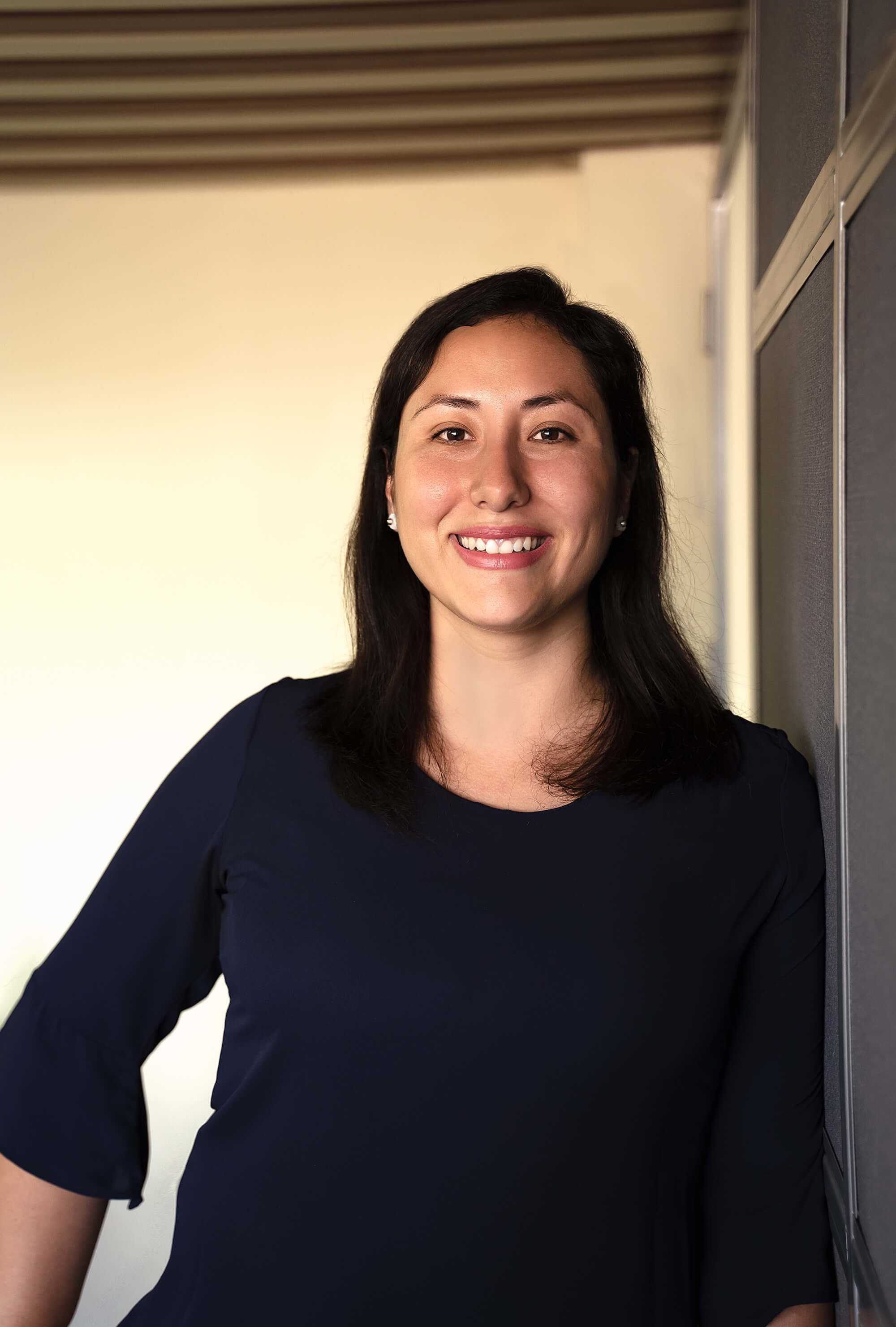
What are the most significant trends affecting the Peruvian business landscape currently?
Erika: In Peru, a developing country, the impact of these global trends is often delayed. In some ways, this gives us a head start. Perhaps the most significant trend affecting the Peruvian private industry right now is environmental sustainability in business.
From its inception, Universal Colors has had a mandate to make change. We work closely with organisations that support eco-friendly innovation. Sustainability is not always the easiest option, but we have to make sacrifices to preserve our environment.
Peru is a rich country – as Peruvians, we are blessed with opportunity. However, the stability of the broader Latin American economy, currently reeling from various corruption scandals, has the potential to impact our industry.
That said, there is always opportunity in adversity, and we must be ready to seize it. Despite the realities, we must take care of the family union and look after the business. The rest will take care of itself.
Juana: I’m attracted by complexity; simplicity is boring. Anyone can do the easy thing, but solving complicated problems is what drives me. Difficulties will always exist, but if we continue to fight and approach adversity with creative problem-solving, we are unstoppable. We must work tirelessly to turn the impossible to possible.
How do you maintain your family’s entrepreneurial culture across the whole of Universal Colors?
Erika: Our family’s history plays a significant role. Our employees are well aware of the difficulties we experienced early on. This level of openness and transparency makes it easier when it comes to innovation and betterment as an organisation. Two years ago, we started an internal initiative to focus on continuous improvement. The goal is to create an environment where people are encouraged to share suggestions for improvement at every level.
It’s a long process. Creating this environment does not happen overnight. However, we’ve planted the seed and are actively working to nurture its growth.
It’s incredibly satisfying to see people approach their work in an entrepreneurial way and with fresh ideas. Recently, we received invaluable feedback on personal and professional development from a workshop we conducted. We asked employees for their vision of what they wanted to see ten years down the road. For some, it involved their own consulting business. We were thrilled. We are always willing and able to help them achieve their dreams.



